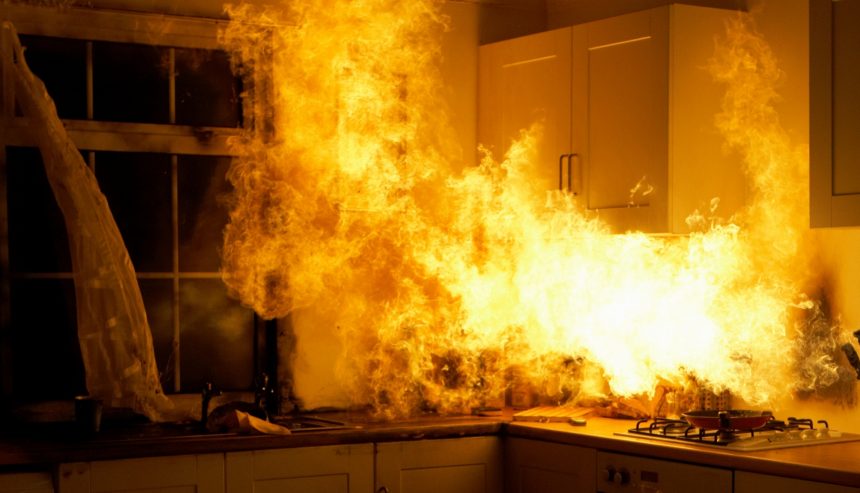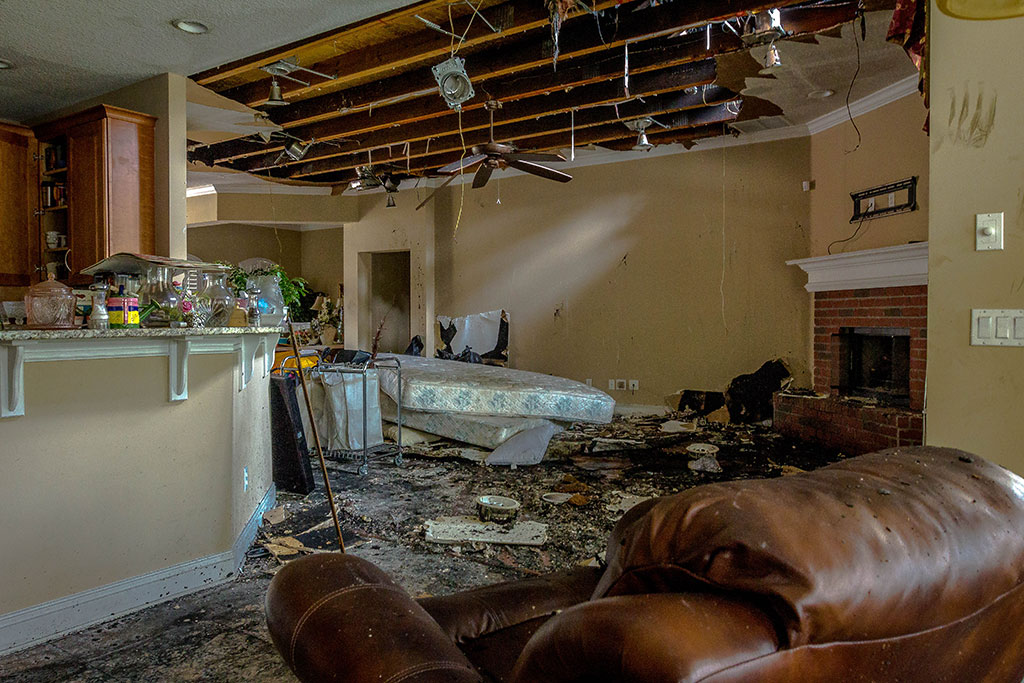Kitchen fires can happen in seconds, but the damage they cause can last a lifetime. In McLean, where many homes blend traditional layouts with modern appliances, fire safety is more important than ever. Cooking remains the leading cause of residential fires in the U.S., and grease fires are hazardous due to how quickly they ignite and spread.
This blog is designed to help McLean residents understand what causes kitchen fires, how to prevent grease-related incidents, which safety tools are essential, and what to do if a fire breaks out. Whether you’re a homeowner or a renter, these tips will help you make kitchen fire prevention McLean VA a routine part of home safety.
What Is a Kitchen Fire?
Kitchen fires are any fires that begin during cooking activities, most often on stovetops, in ovens, or near combustible items. They’re especially common when food is left unattended, grease overheats, or flammable materials are stored too close to heat sources.
These incidents aren’t just quick; they’re destructive, often leaving behind costly damage, emotional trauma, and long-term displacement.
Understanding the Common Causes of Kitchen Fires
Most kitchen fires are caused by preventable actions. The most frequent issue is unattended cooking, where food or oil is left on the stove without supervision. Oil can quickly reach its ignition point, especially when heated on high. Fires also start when flammable items, like towels or packaging, are too close to burners.
In older McLean homes, outdated wiring and aging appliances can increase risk. If cords are frayed or heating elements are faulty, the chance of electrical fires during cooking also rises. These risks reinforce the importance of kitchen fire prevention McLean VA residents must take seriously.
Why Grease Fires Are Especially Dangerous
Grease fires occur when cooking oil reaches its smoke point and ignites. These fires spread quickly and are extremely dangerous because they cannot be put out with water. Adding water to a grease fire can cause oil to splatter and flames to surge upward, turning a small flame into a kitchen-wide emergency. This makes grease fire prevention a key priority in local safety programs.
Here are several ways you can prevent grease fires:
- Monitor Oil Temperature: Use a thermometer when frying or sautéing. Most cooking oils ignite at around 450°F. Never leave oil heating unattended.
- Keep Surfaces Clean: Built-up grease around burners or in range hoods can catch fire from heat or sparks. Wipe surfaces regularly to prevent accumulation.
- Avoid Overcrowding Pans: Too much food in a pan causes oil to bubble and spill. This is one of the leading causes of flash fires on stovetops.
Incorporating these practices strengthens kitchen fire prevention McLean VA, and helps keep cooking spaces safe from common ignition triggers.

Essential Fire Safety Tools for McLean Kitchens
Preventing and stopping kitchen fires starts with having the right safety equipment at home. These tools are central to both kitchen fire prevention McLean VA, guidelines and everyday kitchen safety best practices.
- Class K Fire Extinguisher: Designed specifically for cooking fires, especially those involving oils and fats. Store one within reach but away from direct heat.
- Smoke and Heat Detectors: Install smoke alarms just outside the kitchen and use heat detectors inside. Heat detectors respond to dangerous temperature spikes without reacting to regular cooking steam.
- Fire Blanket: Ideal for smothering small fires or covering a person if clothing catches fire. Store it near cooking areas and ensure everyone knows how to use it.
Outfitting your home with this equipment not only supports grease fire prevention but also fulfils core requirements for kitchen fire safety across McLean homes.
What to Do in a Kitchen Fire Emergency and Who to Call
If a fire breaks out, remain calm and act quickly. The first step is to turn off the stove or oven if it’s safe to do so. If flames are confined to a pan, place a metal lid over it to cut off the oxygen. Never pour water on a grease fire; it will make it worse.
If the fire spreads beyond control, evacuate the home immediately. Call 911 and give your exact address and description of the fire. Do not re-enter the house until fire officials give permission.
Once the situation is safe, contact your gas or electric provider if appliances or lines are damaged. Then notify your home insurance company to begin any necessary claims. These steps form the foundation of responsible kitchen fire prevention McLean VA homeowners should plan for. Emergency preparedness is just as important as fire prevention itself.
Local Fire Prevention Support in McLean
Preventing kitchen fires isn’t just about what you do at home, it’s also about knowing where to turn for expert help and local support. Residents in McLean have access to local resources that can help improve fire safety at home and support broader efforts in kitchen fire prevention McLean VA communities.
- Fairfax County Fire & Rescue Department: Offers free in-home fire safety inspections and fire escape planning guidance.
- Hardware and Safety Equipment Retailers: Local suppliers provide certified Class K extinguishers, smoke alarms, and stovetop suppression devices tailored for home kitchens.
- Community Education Workshops: Some neighborhood associations and community centers host seasonal workshops on home fire safety for families and individuals.
Attending these sessions can improve both general safety and grease fire prevention knowledge, especially for households with young children or elderly residents.
Conclusion
Kitchen fires can start in seconds but cause lasting damage. By staying alert while cooking, keeping surfaces clean, and having the right tools nearby, you can significantly reduce the risk. Grease fire prevention is especially critical, given the intensity and unpredictability of oil-based fires. McLean homeowners, whether in a historic house or a modern condo, benefit greatly from a proactive approach. With smart habits and local support, kitchen fire prevention McLean VA, becomes a manageable part of everyday life.
FAQs
Q1: How often should I check my kitchen fire extinguisher?
A: Inspect the pressure gauge monthly and replace the extinguisher every 5 to 10 years, or immediately after use.
Q2: Can I use baking soda on a grease fire?
A: Yes, baking soda can help extinguish small grease fires, but you need a large quantity. A metal lid or fire blanket is faster and safer for effective grease fire prevention.
Q3: Are smoke alarms suitable for kitchens?
A: Use heat detectors in kitchens instead of smoke alarms to avoid false alarms from cooking steam or smoke.
Q4: Should I call 911 even if I put out the fire myself?
A: Yes. It’s best to have the fire department assess the scene to ensure there’s no hidden risk. It also supports local kitchen fire prevention McLean VA tracking.
Q5: Do smart devices help prevent kitchen fires?
A: Yes. Some smart monitors detect unattended burners and heat buildup, offering automatic shutoff and mobile alerts, supporting both general and grease fire prevention.



